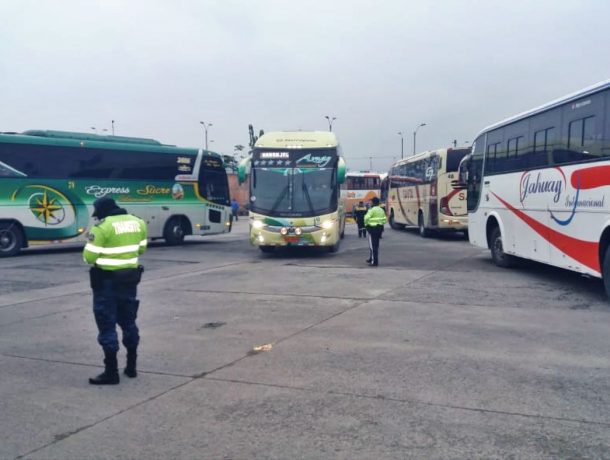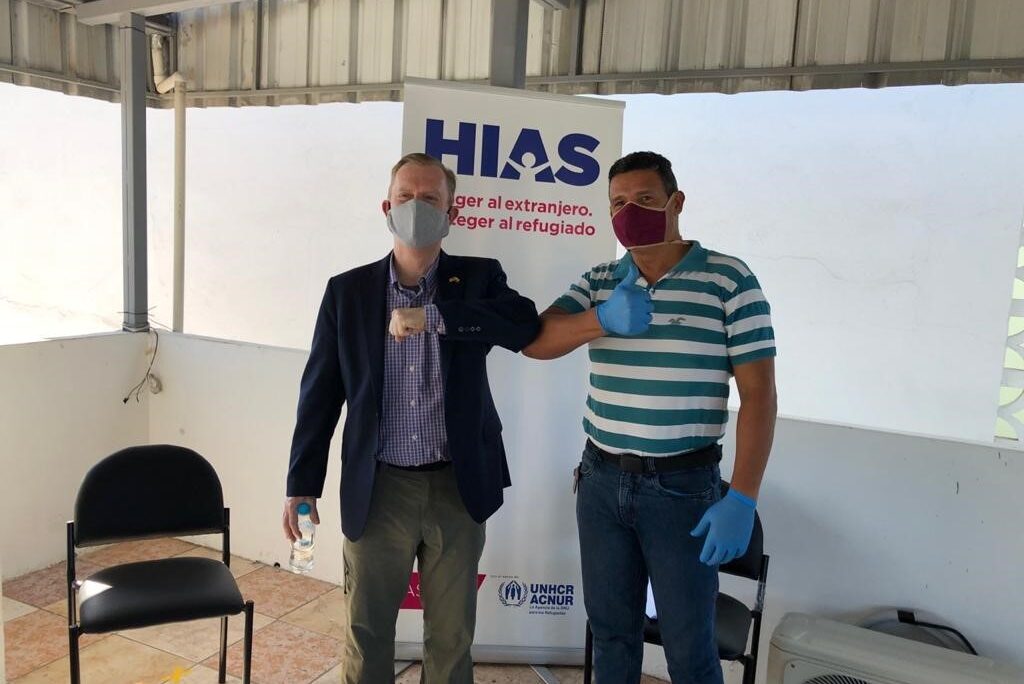The owners of the interprovincial and intercantonal buses continue to await authorization from the Cantonal Emergency Operations Committee (COE) to resume service in and out of Cuenca, despite the fact that they’ve been authorized by the Minsitry of Transport and Public Works to operate since June 15, 2020.
This week they met at the Cuenca Terrestrial Terminal to ask the leaders of the different cooperatives to request that the COE allow them to restart their operations, which have been suspended for 110 days.
According to data from the Mobility Company of the Municipality of Cuenca, (EMOV EP), the local land terminal has 27 platforms that are used by 54 interprovincial and intercantonal transport operators. A total of 1,048 buses leave and arrive from these facilities. They go to all the cantons of Azuay and to most of the country’s provinces.
Víctor Sigüenza, leader of the Interprovincial Transport Alliance (ATRAIN), warned that the transport owners are on the verge of bankruptcy, given that their units have been stopped for almost four months.
The cooperatives belonging to ATRAIN are: Transporte San Luis, Súper Semería, Exprés Sucre, Súper Taxis Cuenca and Turismo Oriental. ATRAIN also represents minibuses.
The major issue in the way of the bus owners is that the land terminals of the other cities that they connect to must have a validation from the national COE. Cuenca was the first in the country to receive this authorization.
According to Patricio Picón, of the Union of Cooperatives of Interprovincial Transport of Passengers of Azuay, they are still waiting for national COE validation for other parts of the country. “At the moment we cannot reach Guayaquil or Quito, because the terminals there have not followed the protocols,” he said.
Picón explains that there was confusion when it was reported that on June 15 interprovincial transport could resume its activities. To do so, each province must comply with certain protocols.
Sigüenza explained that ATRAIN needs not only the authorization of the Cuenca COE, but also that of Guayaquil, as this is one of the main routes that its units cover.
He indicated that they have a biosafety protocol that includes the placement of trays to disinfect passengers’ shoes, as well as the signage of the seats to limit the capacity to 50%. Likewise, all the drivers of the interprovincial and intercantonal units have undergone a COVID-19 test as a requirement to return to work.
In a previous statement, Cuenca Mayor Pedro Palacios stressed that the Cuenca Terrestrial Terminal is ready for travel to restart, but the Cantonal COE must ensure that the terminals in the other provinces are in adequate condition to prevent the spread of the coronavirus.
Busetas offer service from Quito airport to Cuenca
As a support to Ecuador’s citizens, tourist transport company Operazuaytur has been provinding a free transfer service to Cuenca for travelers who have completed quarantine in Quito.
Patricio Chérrez, head of the company, indicated that this was coordinated by the National Emergency Operations Committee (COE) and the Municipality of Cuenca.





0 Comments